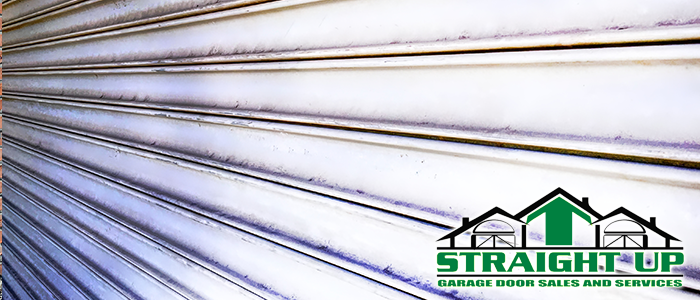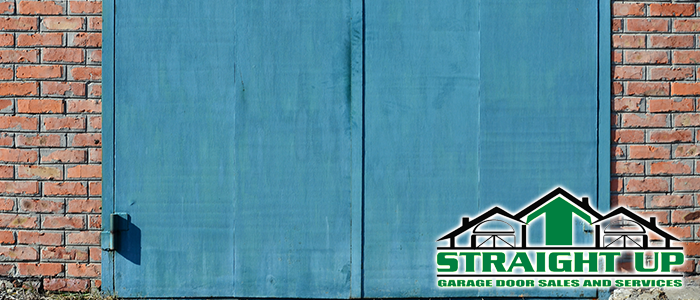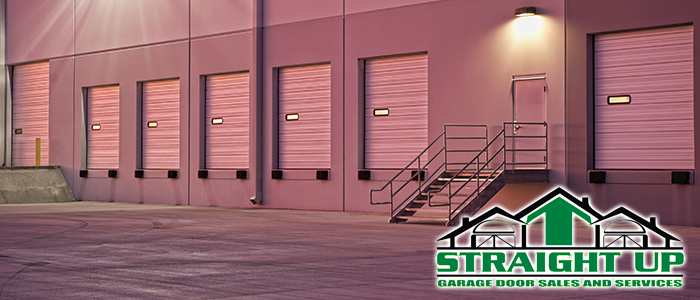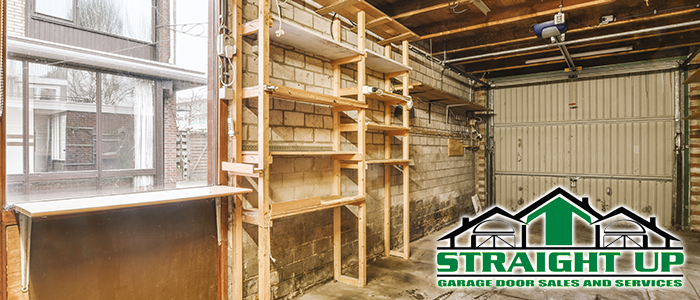The garage door on any home is a key element. They are important to not only to curb appeal, but as an entrance into your home. It is also a storage place for vehicles and items. When your garage door becomes bowed, it leads to a loss of curb appeal. It also greatly affects the doors’ functionality as well. Learn everything you need to know about bowed garage doors.
How Do I Know If My Garage Door Is Bowed?
A bowed garage door will have the appearance of being caved-in. Bowing is a type of warping that occurs across the surface of your garage doors and give them a look that is ‘just not right’ and is hard to miss. When your garage door begins to bow, you’ll know it and not just from the appearance. A bowed garage door can affect your garage door opener through additional strain causing it to moan or hesitate as it works to pull the doors back into place.
Why Should I Worry About A Bowed Garage Door?
While many homeowners will continue to raise and lower their bowed garage doors through the resistance offered by the door itself, this isn’t wise. While it may not seem like a ‘big deal’ to have mild resistance in opening and closing your door it can have lasting effects that cause additional damage.
As time goes on, the amount of pressure required for opening and closing a bowed garage door will only increase as the continued pressure on the rails begins to affect them. A bowed garage door will push against the rails in an unnatural manner, making it more and more difficult for the rails to lift the garage door and eventually make it impossible.
This leads to safety concerns of the rails shifting or even falling from their place, causing the entire garage door to fall. This poses a serious threat to any individual who may be walking or standing in close proximity to the garage doors. In a best-case scenario, the doors will simply be unable to be raised any longer.
Potential Causes
The differences in garage door materials will affect their performance overall. A bowed door is more often than not affected by fluctuations in temperature and severe weather patterns. Wooden garage doors are the most susceptible to bowing. This is not a surprise, as wood is susceptible to temperature fluctuations. Other material doors such as steel are far less likely to bow and typically only bow when the garage door opener is incompatible and unable to handle the weight of the door, causing it to pull the door inwards rather than upwards.
How To Fix It
Depending on the style of your garage door, bowing may be as quick and easy as replacing a few panels that have been affected. If however, your entire garage door is bowed then it is definitely time to look for a replacement. Steel doors that are bowed pose and especially dangerous situations given the source of the issue being an incompatible garage door opener. If you find your garage door opener struggling to fit the door back into place, or you are having to work harder to manually push it into place when opening, then it’s a good time to call a professional.
Is It Preventable?
As mentioned above wooden garage doors are more susceptible to warping. The downside is some bending or warping is almost unavoidable. However, knowing that your garage door is susceptible to these types of issues will allow you to better prepare and take preventable action.
Having a professional come in and apply stains, paint, and seals along with weather stripping will go a long way in preventing moisture from getting into the garage.
The most effective method of warp and bowing prevention is to invest in a door that is less susceptible. Additionally, an internal steel structure with external wooden panels will give you the wooden garage door appearance while providing additional protection against warping and bowing. For these heavier doors be sure to invest in a garage door opener than can handle the weight, especially for larger door options.
Contact Us
If you have issues with your garage doors, give our professional team a call. We take care of replacements, repairs, and new installs.





